If you have some extra apples (or leftover cores!) lying around, you’re probably wondering “Can chickens eat apples?” You’re not alone! I get asked this question all the time.
The short answer is YES, but they can be high in sugar. So, how much is too much? What about the seeds? Don’t they have cyanide in them?
To get to the bottom of it, I’ve researched this topic to get all of the answers and we’ll tackle the following questions together:
- Are apples safe for chickens?
- Can they eat raw apples?
- What about the seeds? The skins?
- How many apples can chickens eat?
- What is the best way to feed apples to chickens?
- What is the nutritional value of bananas?
- What foods are toxic to chickens?
Let’s dive in!
*Disclosure: This post may contain affiliate links to products (including Amazon). I’ll earn a small commission if you make a purchase through my link, at no additional cost to you! Regardless, I only link to products that I personally use on our homestead or believe in.
Can Chickens Eat Apples?
Yes – your chickens can certainly have and enjoy apples! Apples are a great treat for your flock, but let me stress the word treat. They have a decent (natural) sugar content and the seeds contain small amounts of cyanide, so moderation is key.
While it’s okay for chickens to eat apples, there are a few foods that are toxic to them and should be avoided. We’ll cover that later on!
How many apples can chickens eat?
This is a matter of debate. I like to keep fruit as an occasional treat only for my flock (~1/4 apple per bird), and keep the bulk of their diet limited to a balanced feed, foraged greens, and bugs.
Apples are low in protein, and a protein-deficient diet can lead to a reduction in egg laying and reduced hatchability of their eggs. Also, too much sugar can lead to obesity and fatty liver, just like with humans!
However, research has been done on using apple by-products in layer flocks that consist of up to 10% of their diet with positive results. If you want to go this apple-heavy route, I’d just make sure that your flock has adequate supplemental protein sources to balance it out.
Can chickens eat apples with the skin?
Absolutely! Nothing goes to waste when it comes to chickens. They’ll love any part of the apple that you give them – skin, flesh, core, seeds, you name it! They might even eat the stem for good measure, haha.
Can chickens eat raw apples?
Yes, chickens can definitely eat raw apples. There’s no need to spend time cooking them first.
Can chickens eat apple seeds?
Let’s talk about the big elephant in the room, shall we? Anytime I talk about apples for human or poultry consumption, someone asks about the cyanide content in the seeds and whether they are toxic or not. So, are they?
Apple seeds (along with cherries, elderberries, and almonds) contain a compound called amygdalin, which is a cyanogenic glycoside. If the seed is left intact, it is completely harmless. However, if the seed is crushed or chewed, then amygdalin can interact with digestive enzymes and release hydrogen cyanide.
Chickens initially eat the seeds whole, but they will (likely) get crushed once inside their muscular gizzard. The good news is that their gizzard is fairly acidic with a pH of 2.5-3.5, which reduces the overall formation of cyanide.
How much is too much?
The lethal dose of cyanide for chickens is 11.1 mg/kg, so how many apple seeds would a chicken need to eat to become poisoned?
- Let’s say your chicken is 7 lbs (3.2 kg), so the lethal dose would be 35.52 mg of cyanide
- Apple seeds contain between 1-4mg of amygdalin per gram of seeds (depending on the variety) and each apple seed weighs ~0.7 g
- For each 1 mg of amygdalin, up to 0.06 mg of cyanide can be produced
So, to reach toxicity, our 7 lb chicken would need to consume between 66-264 seeds (depending on how potent the seeds are).
That’s a lot of seeds! Considering most apples contain only 5-8 seeds, 1 chicken would need to eat anywhere from 8 to 52 apples to reach cyanide toxicity. I’d say, you’re more than safe dividing a few apples among your flock.
Do Chickens Like to Eat Apples?
Absolutely! When my chickens notice us eating an apple, they will follow us around until we throw them the core. Chickens LOVE apples!
What’s also odd is they seem to prefer the soft brown spots. So, if you have some apples that are past their prime, they’ll absolutely go for it! Just don’t feed your chickens completely rotten or moldy apples.
What is the Best Way to Feed Apples to Chickens?
It can be as simple or as complicated as you like. I prefer to throw whole apples (if they are starting to get a bit soft) into the chicken yard, or the cores after I’ve finished eating the apple.
You could also chop the apples into smaller chunks to make sure that everyone gets a little bit. There’s really no wrong way to go about it (similar to grapes and blackberries), but the simpler the better in my book.
The Health Benefits of Apples for Chickens
Apples (in moderation) are a delicious, nutritious snack to give to your flock! They are loaded with vitamin C, potassium, riboflavin and cooper. Plus, their high water content aid in hydration as well. A nice snack on those hot summer days!
Fiber
A medium apple provides a whopping 4g of fiber, which is great for chicken gut health. Chickens have a diverse microbiome that hosts over 900 unique strains of microorganisms that thrive off of consistent fiber intake.
Fiber also has the added benefit of reducing ammonia emissions! Fiber aids in proper digestion, reducing the amount of undigested protein that can ferment into harmful ammonia. High ammonia levels can pose a serious health hazard for your chickens.
Vitamins and minerals
Apples are commonly known for their high vitamin C and potassium content, but did you know that they are high in riboflavin and copper as well?
- Vitamin C: Improves their stress response, and disease resistance and combats free radical damage. It also improves their laying rate and hatch potential!
- Potassium: Important for egg laying, egg weight, and shell thickness. Potassium deficiency can lead to slow growth, poor feed efficiency, and increased mortality.
- Riboflavin: Deficiency can result in difficulty walking, curled-toe paralysis, reduced egg production, and decreased hatchability of eggs.
- Copper: Promotes proper growth and a healthy immune system, while also fighting off bacterial overgrowths.
Hydration
Apples have a higher water content than bananas, blackberries, and even grapes! Apple juice anyone? If you’re looking for an excellent, hydrating snack on a hot summer day, apples are the way to go!
Nutritional breakdown of apples
Want to see a nice visual? Here’s what 1 medium apple provides according to USDA FoodData Central. I wouldn’t recommend feeding an entire apple to each of your chickens, but it’s nice to look at food in portions that we are familiar with.
What Foods are Toxic to Chickens?
Thankfully, chickens are open to eating just about any kitchen scraps that you bring their way, but there are a few things that should never be eaten by chickens:
- Raw potato peels
- Avocado pit and peel
- Dry/uncooked beans
- Anything moldy or rotten
- Fried foods
- Salty foods
- Caffeine or alcohol
- High-fat foods
- High-sugar foods
- Artificial sugars
Also, consider avoiding strong-flavored foods. These flavors can end up in your morning eggs, resulting in a pungent breakfast! Pee-yew!
- Garlic
- Onions
- Fish
Other Chicken Articles You’ll Love:
- Can Chickens Eat Bananas? What About the Peel?
- Can Chickens Eat Grapes? Are They Safe?
- Can Chickens Eat Blackberries? Are They Safe?
- Do Chickens Eat Ticks? (…Do Ticks Eat Chickens?)
Final Thoughts
Well that was fun and hopefully you’re now feeling confident about feeding some leftover apples to your flock as a treat. They will absolutely love it and it’s a nice nutrient boost as well. Just don’t over do it!
Are you a first-time chicken keeper? Or maybe you don’t even have chickens yet? Definitely check out my ultimate resource: How to Care for Chickens: A Beginners Guide.
*Information in this article was referenced from personal experience and/or from my favorite chicken books The Chicken Health Handbook & Storey’s Guide to Raising Chickens unless otherwise noted.
The Homesteading RD's Product Picks Over the years, I've found that the chicken health sections in the 2 books above are just not thorough enough. This chicken health handbook is a great resource to have for whatever health issues come your way. This is my go-to chicken book! Full of practical advice. It covers everything you need to know from coop design, chicken health and incubating eggs.

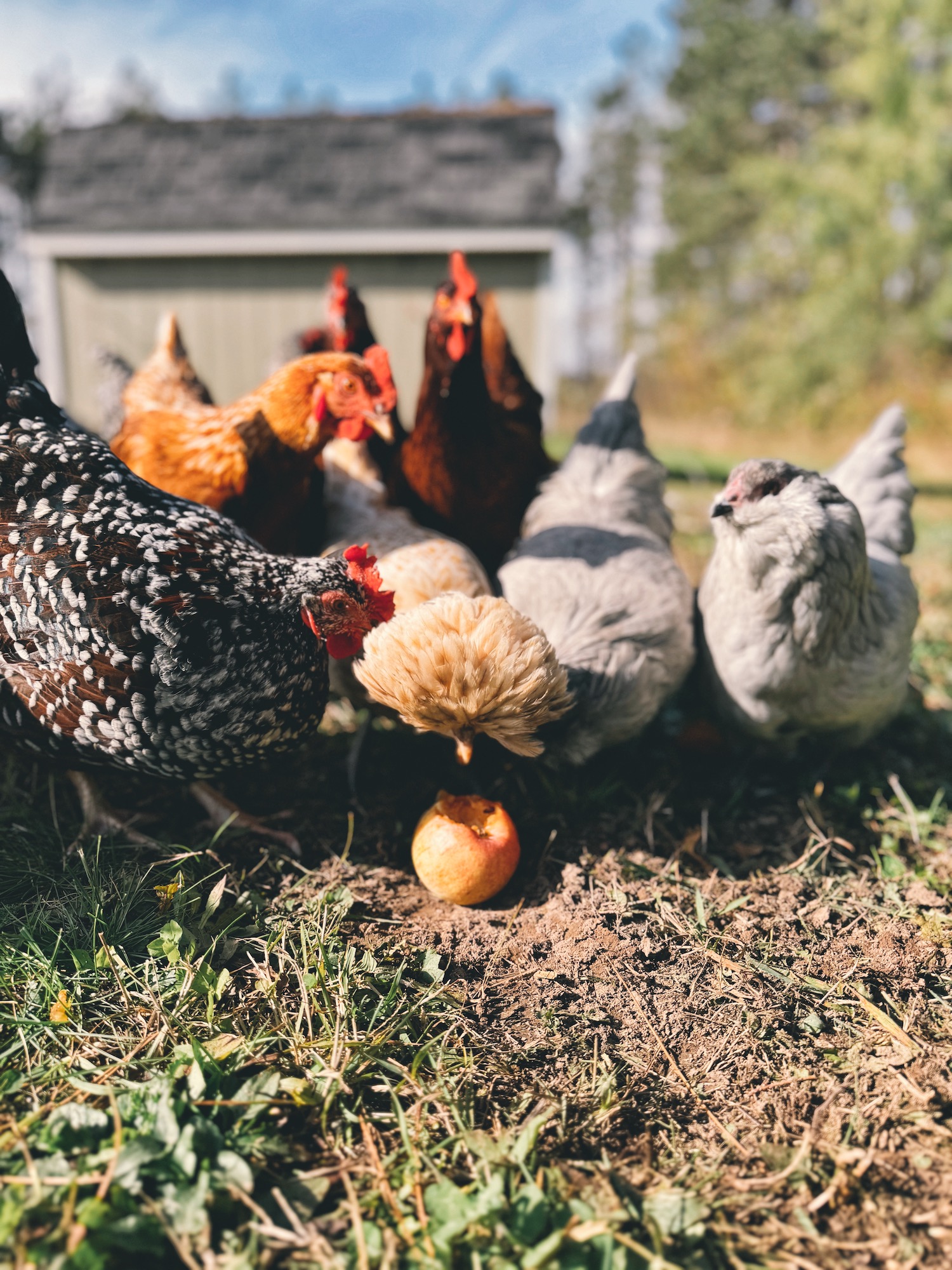
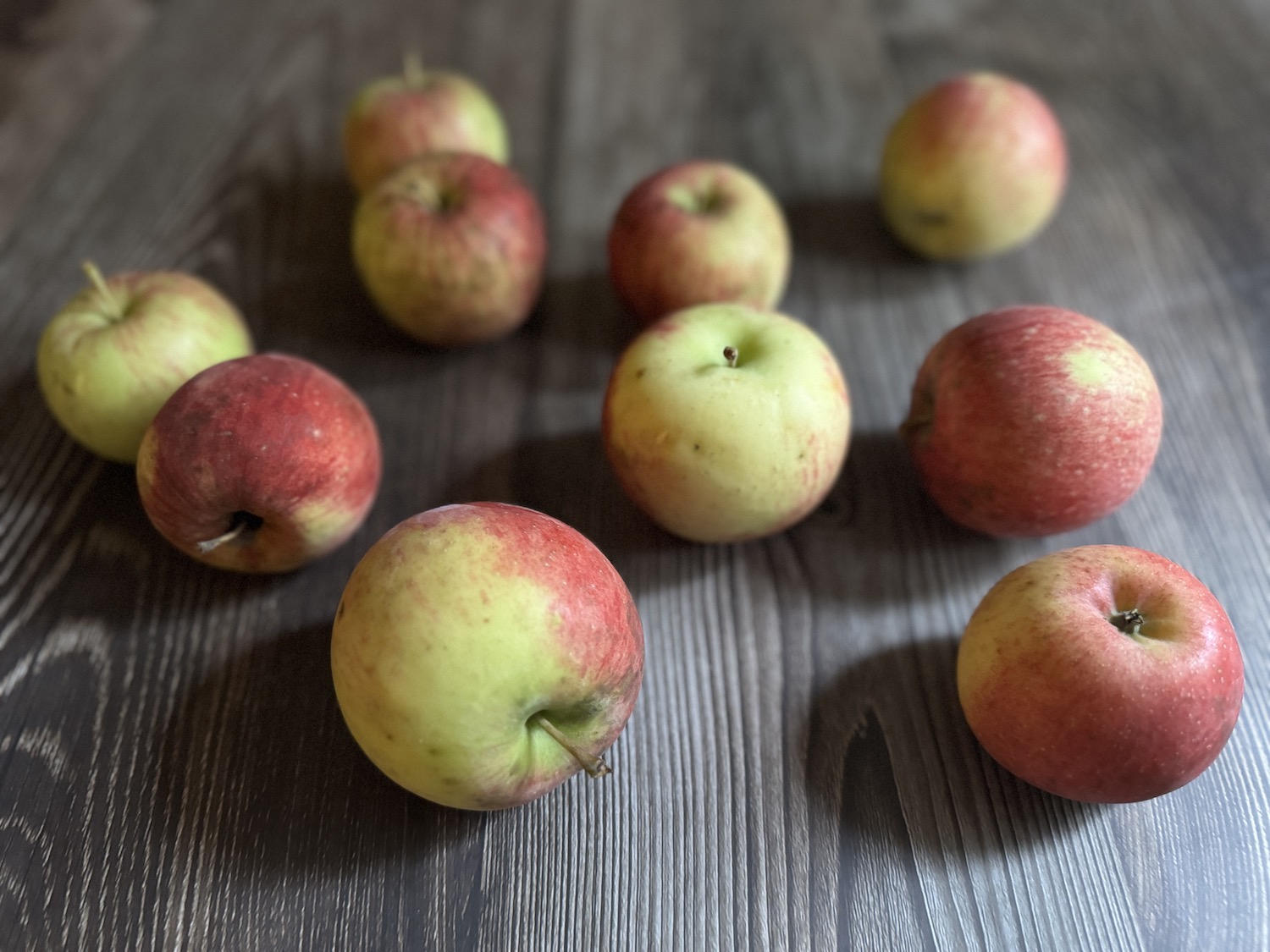
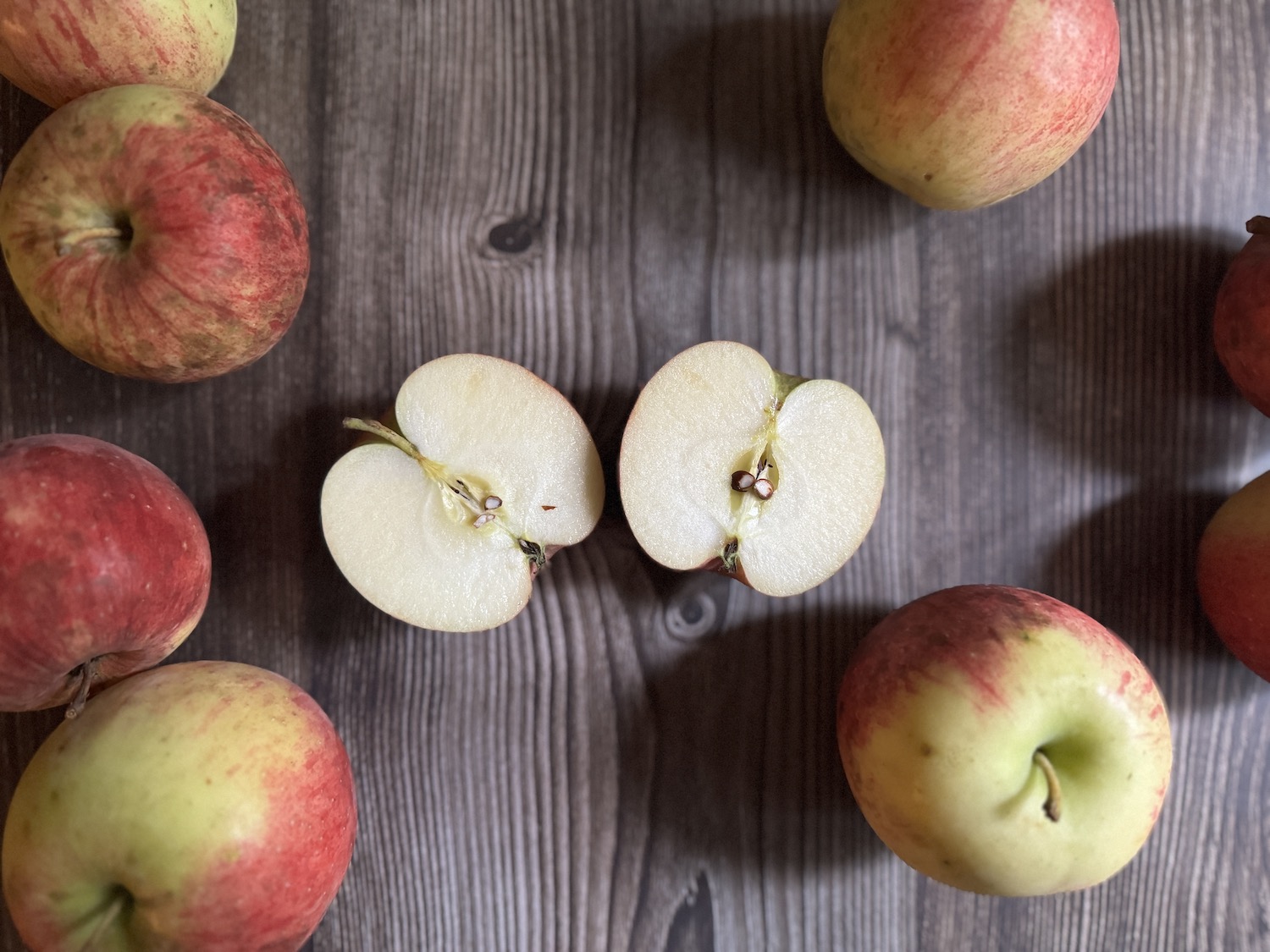
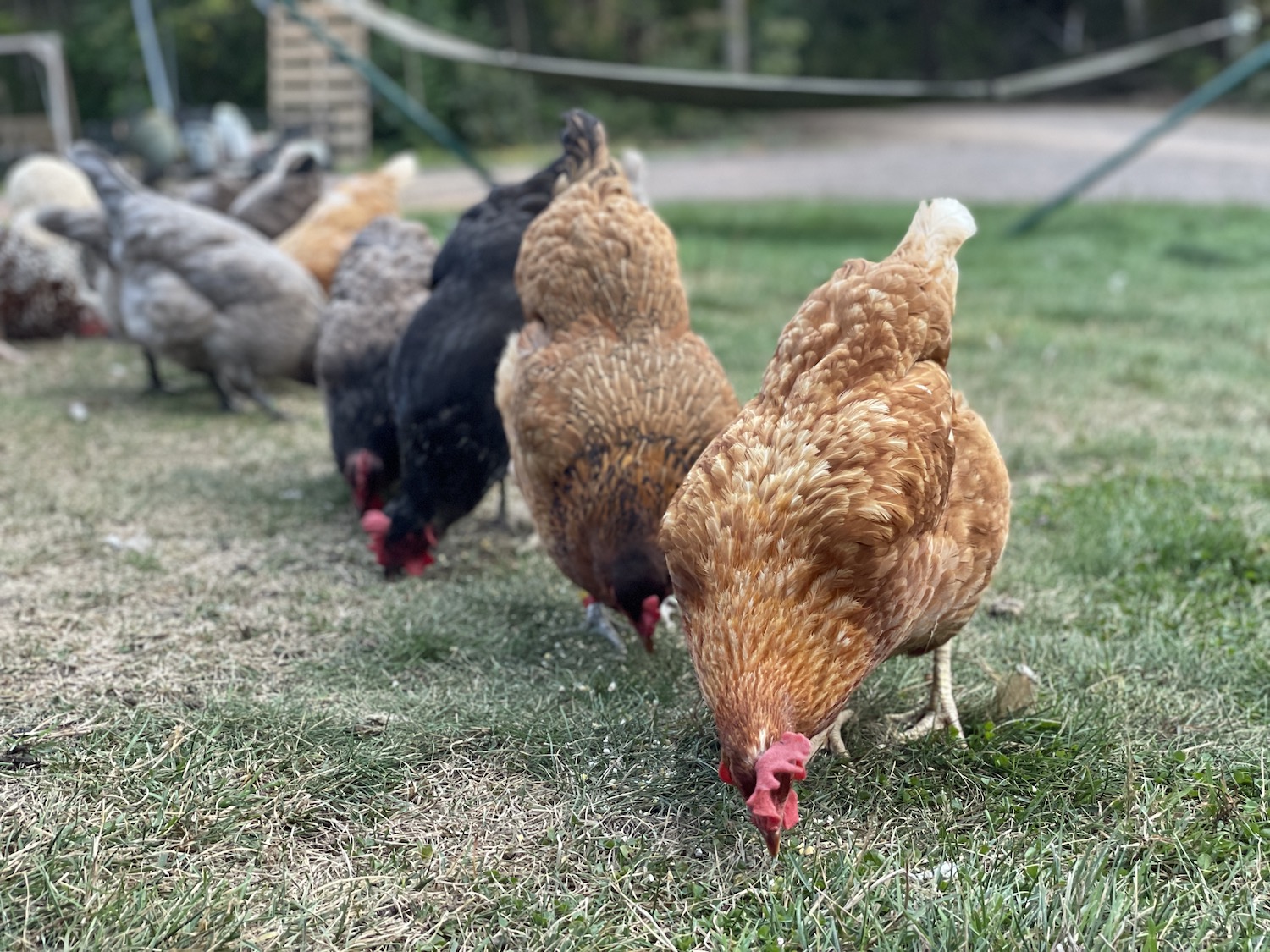
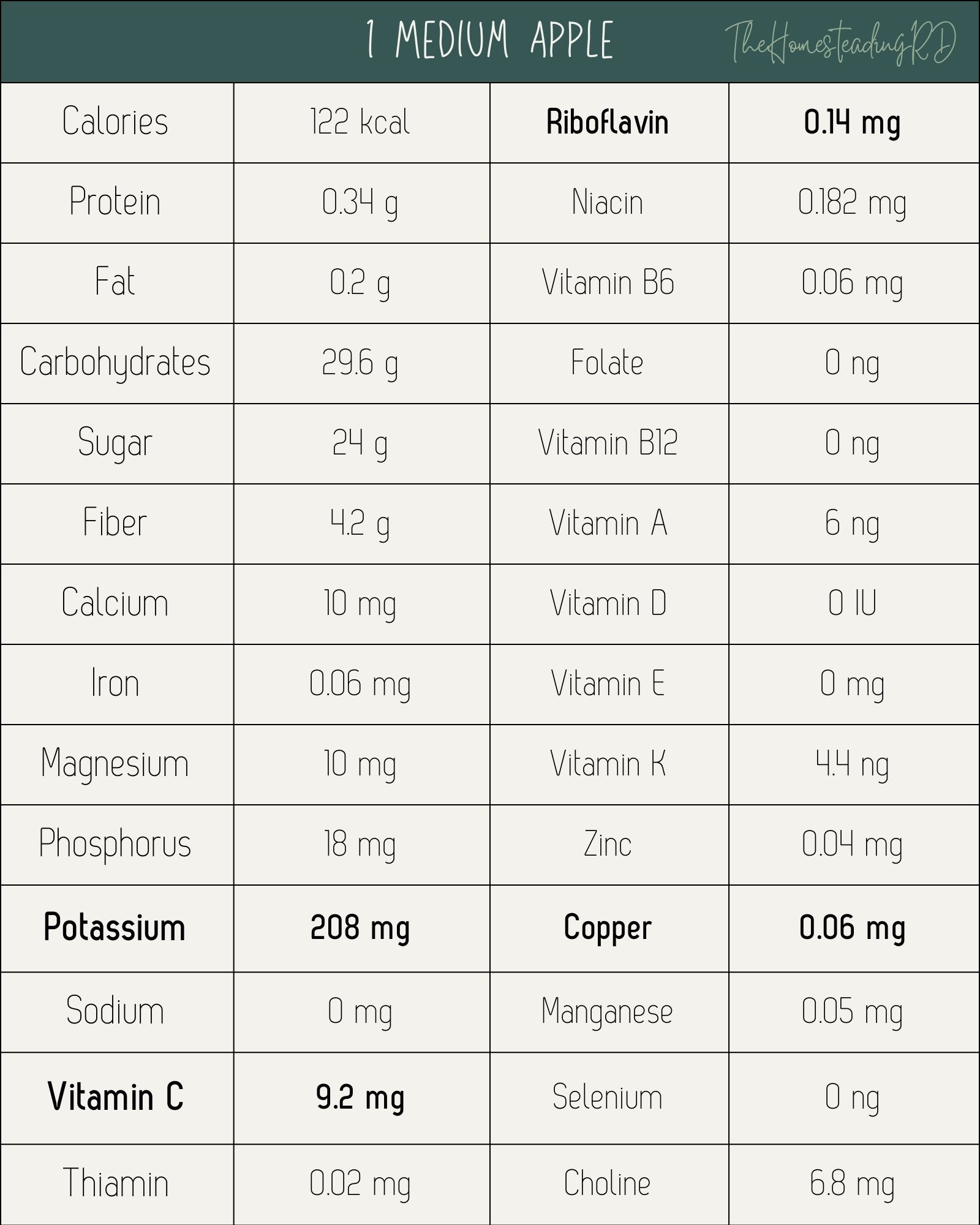
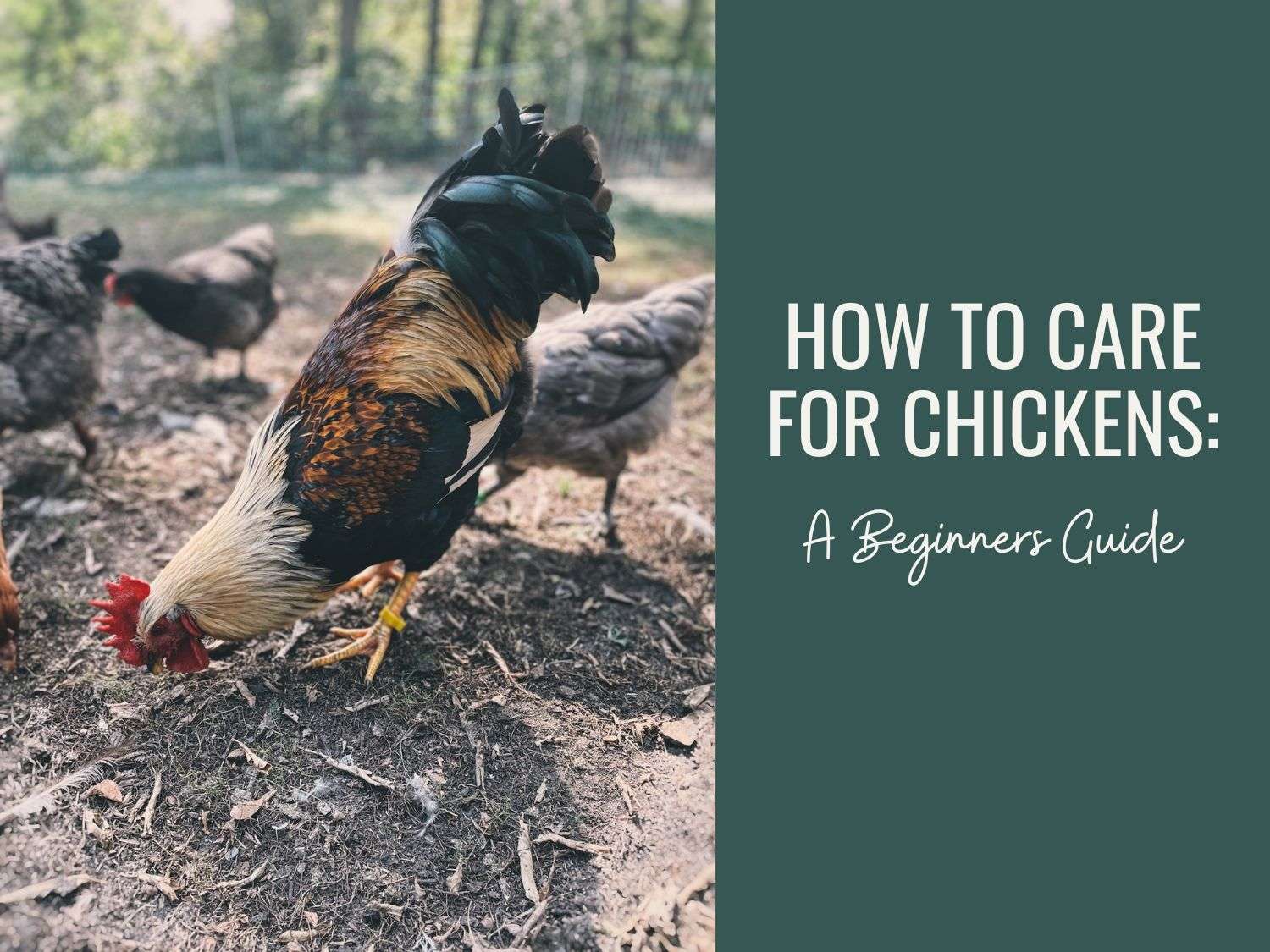




Thank you so much for taking the time to research, write, and publish this. Overall, my biggest (reading-induced) concern about apples and my chicks (they’re big now, but will always be our chicks!) has been about the seeds and cyanide! I’ve reasoned that it can’t be a game stopper, but have never gotten as far as you in working that out. So again, many thanks!!
You’re welcome! I’m glad you found it helpful! 🙂